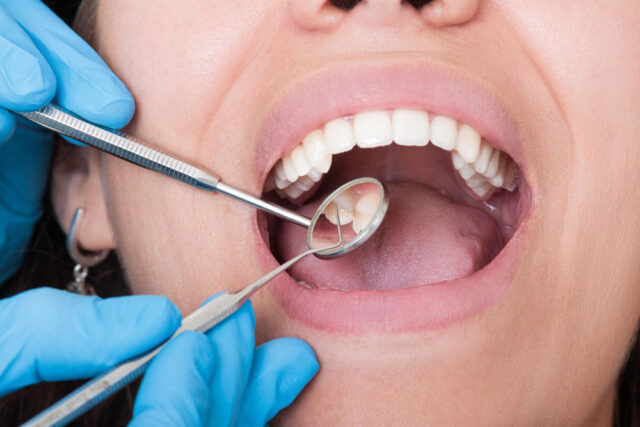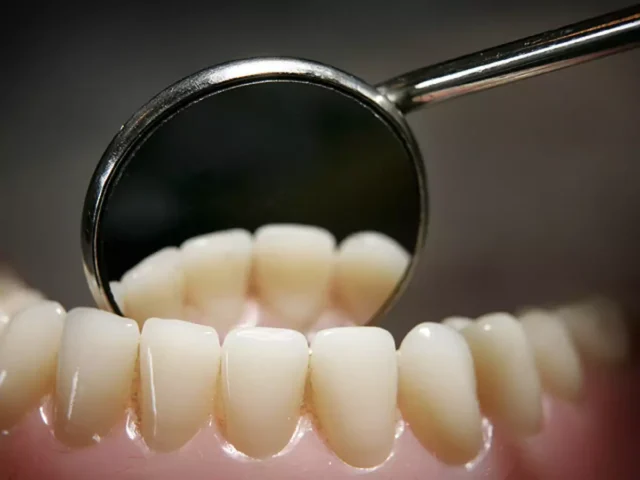
Oral health transcends having a beautiful smile and fresh breath; it’s a vital component of overall well-being, with repercussions that can reverberate through your finances, health, employment prospects, and overall happiness.
Oral health transcends having a beautiful smile and fresh breath; it’s a vital component of overall well-being, with repercussions that can reverberate through your finances, health, employment prospects, and overall happiness.
Here, we delve into the financial consequences that poor oral health can cause and how you can avert this economic burden.
Direct Treatment Costs

The most conspicuous expense stemming from oral health neglect revolves around the need for dental interventions to rectify issues arising from decay, infections, gum disease, tooth loss, or oral cancer. These treatments can carry a hefty price tag, particularly if you lack dental insurance or access to public dental services.
According to a 2022 World Health Organisation (WHO) report, only a tiny percentage of the global population is covered by essential oral health services, with those in direst need often facing the most limited access. The report further underscores the substantial out-of-pocket expenditures associated with oral health care, a financial strain that can plunge families and communities into crisis.
Indirect Health Costs
Poor oral health isn’t confined to your mouth; it can spill over into your general health, increasing your risk of developing various chronic diseases, including cardiovascular disease, diabetes, respiratory infections, kidney disease, rheumatoid arthritis, and certain cancers. These conditions can inflate your medical bills while undermining productivity, potentially leading to disability and even mortality.
For instance, WHO estimates an annual tally of approximately 380,000 new oral cancer cases, ranking oral cancer among the top 10 most common cancers in low- and middle-income nations. Managing and treating such diseases can prove financially tricky and logistically challenging, especially in settings with limited resources.
Employment Costs
Yet another dimension of poor oral health pertains to income loss and career opportunities squandered due to pain, discomfort, absenteeism, reduced work performance, or discrimination.
Impaired oral health can compromise your ability to speak, eat, smile, and interact socially, eroding self-confidence, self-esteem, and mental well-being. These repercussions can cast a shadow over your professional advancement and career prospects.
Furthermore, subpar oral health can create a negative impression on employers, clients, or customers, who may judge your appearance, hygiene, or competence based on your oral health status.
Prevention is Better than Cure

The silver lining amid these concerns is that many oral diseases are preventable and treatable through cost-effective measures within reach of most individuals. The root of oral health preservation lies in maintaining sound oral hygiene practices:
- Brushing your teeth twice daily with fluoride toothpaste
- Daily flossing
- Using mouthwash
- Scheduling routine check-ups and cleanings with a reputable dental office such as Zen Dental.
Additionally, curb or eliminate the consumption of sugary foods, beverages, tobacco, and alcohol, all common risk factors for oral and other non-communicable diseases.
Psychological Impact
Poor oral health can indeed wreak havoc on our mental well-being, often underestimated by many. Chronic dental problems, such as relentless toothaches or recurring gum diseases, are not just agonizing physically but have a profound mental toll too. The persistent pain can invariably lead to sleepless nights, seriously impacting one’s mood and, consequently, cognitive functioning.
Moreover, there’s a deep-seated, pervasive embarrassment tied to unsightly dental issues. Frequently, people might shy away from openly smiling or confidently talking, culminating in heightened anxiety and potential depression. A comprehensive study by the American Dental Association even found a compelling link between persistent oral health problems and dramatically lower self-esteem.
Social Isolation
The profound social implications of deteriorating oral health issues can’t be underestimated or dismissed lightly. An individual who’s intensely conscious about their breath or teeth’s appearance might invariably avoid social venues like parties, gatherings, or even essential workplace events. This self-imposed isolation, born out of embarrassment, can gradually result in profound feelings of loneliness, adversely hampering both personal and professional relationships, and stifling growth and connectivity.
Nutritional Implications

Reflect on the last time you experienced a persistent toothache. Did it profoundly influence your dietary choices? Most likely, it did. Lingering oral health problems, especially excruciatingly painful ones, can significantly restrict our diverse diet. The sheer inability to chew comfortably might deter people from indulging in fresh fruits, crunchy vegetables, or tender meats, leading to potential nutritional deficiencies. Over extended periods, this limitation not only detrimentally impacts oral health but overall physiological health, as the body inadvertently misses out on absorbing essential, vital nutrients.
Impact on Family and Relationships
A single individual’s health concerns, especially significant ones, can unexpectedly ripple out, casting a shadow on the entire family unit. When a beloved family member is continuously grappling with significant dental issues, it may undeniably lead to amplified stress, particularly if there are looming financial constraints or time pressures tied to extensive treatments. Furthermore, if that person remains in unending pain or struggles with overwhelming emotional distress, it can gravely strain familial bonds, dynamics, and mutual understanding.
Quality of Life
Undoubtedly, good oral health is deeply and intrinsically tied to our overarching quality of life. Just imagine the heartbreak of not being able to relish your cherished dish or the discomfort of feeling perpetually self-conscious every single time you desire to smile or engage in a conversation. Such recurring everyday challenges drastically reduce an individual’s inherent ability to genuinely enjoy daily activities, and experiences, and maintain a positive, optimistic self-image.
Long-Term Healthcare Costs

The wise old saying goes, ‘An ounce of prevention is certainly worth a pound of cure’. To many, regular dental check-ups might superficially seem like an unnecessary, avoidable expense. Still, when assessed in the long run, they emerge as a crucial investment, potentially saving colossal healthcare expenditures. Consistently neglecting oral health can pave the way for chronic, debilitating conditions like severe periodontal diseases, which alarming studies have linked to life-threatening ailments like heart diseases and even diabetes. Effectively treating such intertwined, complex health issues can rapidly rack up medical bills, astonishingly far exceeding the nominal cost of routine, preventive dental care.
Emergency Costs
Unexpected dental emergencies, apart from being incredibly painful, can regrettably be exceptionally heavy on one’s pocket, especially if unprepared. A sudden tooth infection, if neglected, can escalate alarmingly rapidly, possibly leading to an emergency hospitalization. Such unforeseen, urgent medical emergencies can consequentially result in bills skyrocketing into thousands, not to mention the accompanying intense discomfort, agony, and distress they invariably cause to the individual.
Summary
Oral health is an integral facet of your holistic well-being, and its neglect can exact a substantial financial toll, touching not just your wallet but also your health, employability, and overall happiness. By safeguarding your oral health through diligent care and attention, you can steer clear of these financial burdens, ensuring a higher quality of life.









